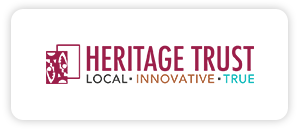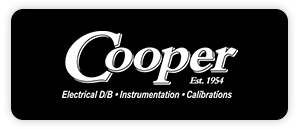Source: Jeff Wright
The Bank Says No
When the bank says no, you don’t qualify for a loan, don’t be discouraged. There are many things you can do to improve your chances for approval. The first thing to do is ask why you were turned down so that you can address these reasons. The bank’s answer will give you a chance to learn what you need to improve on to qualify the next time you apply. Reasons for being denied may include:
- Poor personal credit score
- Limited operating history as a start-up company
- Business operating losses
- High leverage
- Negative net worth and poor cash flow
- Collateral that doesn’t support loan request
- Revenue that is highly concentrated with one customer
- Outstanding legal issues
- Weak market in a specific industry that your company specializes in
Small Businesses and Start-Ups
For small business loans, many banks computer-score loan applications. These banks will run a personal credit report on the shareholder(s). A score of approximately 720 or better is usually needed unless the application is supported by a strong collateral position or a guarantor who has strong personal assets or high net worth. You should order your credit report to verify the credit score and confirm the information is accurate. If there is an error, write to the credit bureaus and ask to have it corrected. You can also pay down credit cards and pay your bills on time to improve your score. It may take some time, but it’s worth the trouble when applying for any credit. Having filed personal bankruptcy may likely disqualify you for a small business loan for a number of years. If this is the case, an alternative source of financing may be needed because the lender will not solely rely on the personal credit history of the applicant.
A bank says no to start-up companies because they want to see a history of one or two years in business. You may need to find an alternative source of financing to bridge the gap before you can qualify. An asset-based lender or factor typically focuses on the strength of the collateral and character of the owners rather than the strength of their balance sheet or operating performance. You will pay more in interest for the credit risk, but doing so provides the financing to take advantage of new business opportunities.
Check with a Trusted Adviser
Companies that have experienced operating losses may require the assistance of third-party trusted advisors to help return the company to profitability. Consultants can help review the pricing of the product or service and purchased materials to improve margins. He/she can help prepare a plan to return the company to profitability. This person can also be a valuable resource when negotiating with customers and suppliers for better terms and with lenders when presenting your plan. Their lending relationships and creditability may support your request for financing.
Banks don’t only look at the operating performance on the income statement – the balance sheet strength is also analyzed. Too much leverage (total liabilities divided by net worth or tangible net worth) can be a determining factor if the bank turns down your request. Too much leverage may indicate that the company has problems servicing its debt when it comes due. In this case, leverage can be lowered by paying down your debt or by increasing your net worth. If cash flow doesn’t allow you to pay down your debt, net worth must be improved. To do so, you can have the shareholders or investors inject additional equity into the company. Agreeing to subordinate shareholders and investors notes, or converting related notes payable into equity are also viable options. Banks view subordinated debt as equity when calculating tangible net worth.
Cash Is King
The idiom ‘Cash is King’ is true for any business. Cash is also a key factor in proving you can repay the bank loan when it is due. A profitable company that shows positive cash flow is always easier to qualify. Many companies go through periods when cash is tight. During these periods, their attention should be on the cash conversion cycle. The cash conversion cycle is the time it takes to convert inventory or a service provided to cash. Implement strong credit procedures in managing your receivables to assure you are selling to creditworthy customers and following up for timely payment. For inventory, buy and process inventory for jobs you have purchase orders for. Not doing so can result in holding slow moving or obsolete inventory. You can improve cash flow by improving your receivable and inventory turnover days and selling idle machinery and equipment that have no further use.
Companies may be performing well and have acceptable balance sheet strength, but the bank still says no. This often occurs because the company doesn’t have adequate collateral to support the loan request. Banks, when analyzing collateral value, typically use a formula when calculating eligible asset value.
For receivables, advance rates can be up to 90 percent of eligible accounts. Ineligible accounts can include any account with a balance over 90 days from the invoice date, contra accounts, a taint rule (i.e. if 25 percent of a customer’s balance is over 90 days, the balance less than 90 days is also ineligible), related company accounts, and foreign receivables not covered by credit insurance. For inventory, advance rates up to 60 percent of raw materials and finished goods are common. Ineligible inventory may include work-in-process, packaging, consignment inventory, inventory at outside processing, and any slow moving or obsolete inventory. For machinery and equipment, advance rates may be up to 80 percent of either a forced sale value or orderly liquidation value. Ineligible machinery and equipment can include any equipment that has a prior security interest (i.e. leased equipment) and lots (small items grouped together). For real estate, advance rates are up to 60 percent of a fair market value appraisal.
Management needs to monitor the ineligible collateral. For example, if receivables show a substantial balance of 90 days or longer, a stricter collection policy is needed to improve receivables available for borrowing purposes. If the business assets don’t provide enough support, it may require the shareholders pledge, personal assets to support the loan request. Subordinated debt or equity investors can help bridge the gap in partnership with the bank financing. However, this may require you give up some ownership interest or control of the company.
Diversify and Solidify
Companies that are highly concentrated with one customer or operate in one industry (i.e. oil and gas) run the risk of volatile operating performance. The company’s ability to continue is in question if the market changes. A bank may perceive a higher risk if the company puts all of its eggs in one basket. The solution is to diversify into other customers and industries so that it can survive if either slows down. Management needs to be aware of its customer base and the market, be flexible to make changes to its operations, and make necessary cuts in overhead when needed.
Additionally, outstanding legal issues need to be addressed or settled to the satisfaction of the lender before the bank considers financing. Anything that can disrupt operations can result in a turndown (i.e. an unsettled union contract).
If you don’t qualify for traditional bank financing, the bank may consider a facility supported by the Small Business Administration’s guaranty. With the support of the SBA, banks are willing to accept more risk. If rejected for an SBA facility, other alternative sources of financing need to be used to bridge the gap until you can resubmit your loan request. Some alternative sources include:
- Asset-based lenders
- Private equity investors
- Investment bankers
- Mezzanine lenders
- State-supported programs
About Scale Finance
Scale Finance LLC (www.scalefinance.com) provides contract CFO services, Controller solutions, and support in raising capital, or executing M&A transactions, to entrepreneurial companies. The firm specializes in cost-effective financial reporting, budgeting & forecasting, implementing controls, complex modeling, business valuations, and other financial management, and provides strategic help for companies raising growth capital or considering M&A/recapitalization opportunities. Most of the firm’s clients are growing technology, healthcare, business services, consumer, and industrial companies at various stages of development from start-up to tens of millions in annual revenue. Scale Finance has multiple offices in the Carolinas including Charlotte, Raleigh/Durham, Greensboro, and Wilmington with a team of more than 45 professionals serving more than 120 companies throughout the region.







